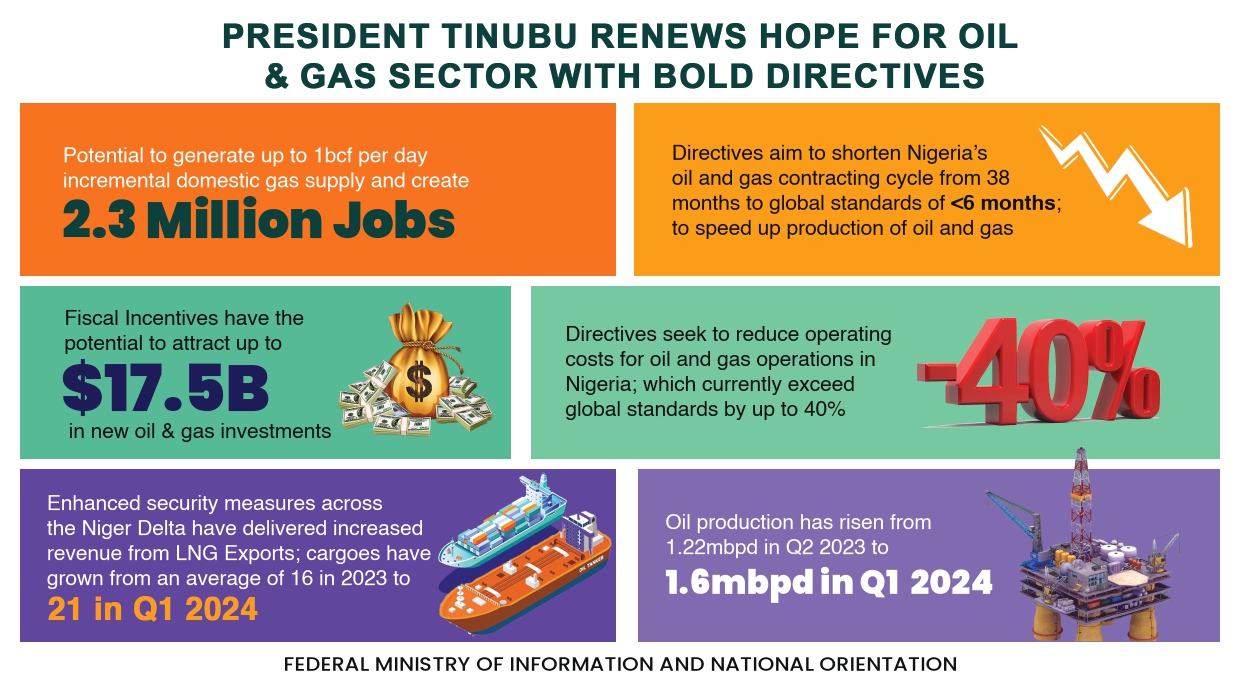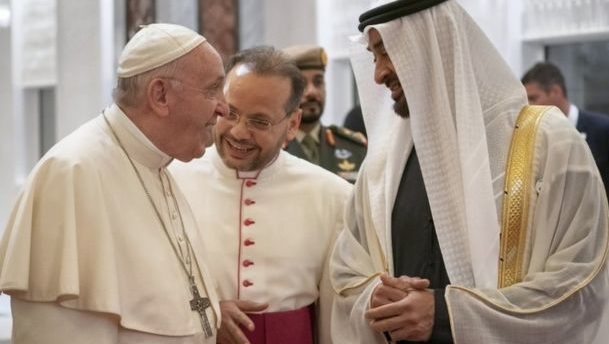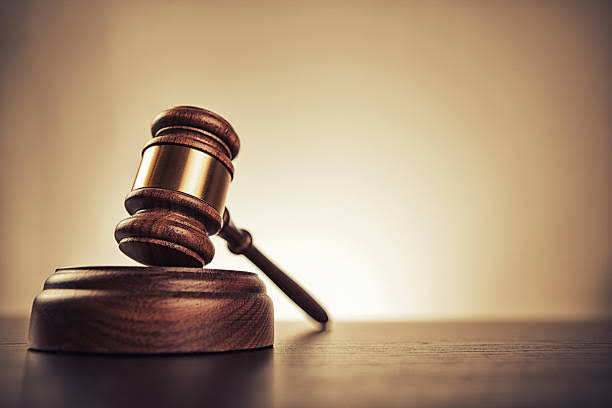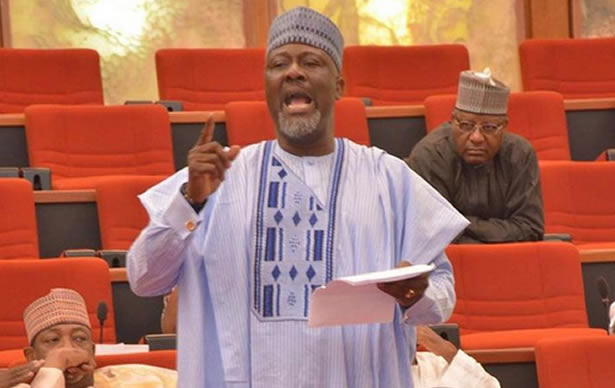Pope Francis has arrived in the United Arab Emirates for the first ever visit by a pontiff to the Arabian peninsula.
He landed in Abu Dhabi where he was greeted by Crown Prince Sheikh Mohammed bin Zayed al-Nahyan.
The Pope will take part in an interfaith conference and on Tuesday hold Mass in which 120,000 people are expected to attend.
Before leaving he expressed concern about the war in Yemen, in which the UAE is engaged.
“The population [in Yemen] is exhausted by the lengthy conflict and a great many children are suffering from hunger, but cannot access food depots,” the Pope said.
The cry of these children and their parents rises up to God,” he said.
It is not clear whether the Pope plans to raise the issue in public or in private while visiting the UAE. The UAE is involved in Yemen as part of a Saudi-led coalition.
The UAE is home to nearly a million Roman Catholics, most of them from the Philippines or India.
Some have been queuing for passes for Tuesday’s Mass. One told AFP news agency the Pope’s visit “opens doors for conversations about tolerance that the whole world needs to hear.”
In a video message on Thursday, Pope Francis said: “Faith in God unites and does not divide, it draws us closer despite differences, it distances us from hostilities and aversion.”
READ ALSO: It’s better to be an atheist than a hypocritical Christian – Pope
He paid tribute to the UAE as “a land that is trying to be a model of coexistence, of human brotherhood, and a meeting place among diverse civilisations and cultures.”
While in Abu Dhabi, the Pope will also hold a meeting with Sheikh Ahmed al-Tayeb, the grand imam of Cairo’s al-Azhar mosque, which is the highest seat of learning for Sunni Muslims.
The BBC reports that the Vatican hopes that the Pope’s visit might loosen restrictions on the building of churches in the region, particularly in neighbouring Saudi Arabia where non-Muslim places of worship are forbidden.
Vatican officials say they need a stronger Church presence in the UAE to minister to the Catholic community there.
“We are really stretched. We need more churches. We need more priests,” one official was quoted by Reuters as saying.
BBC











